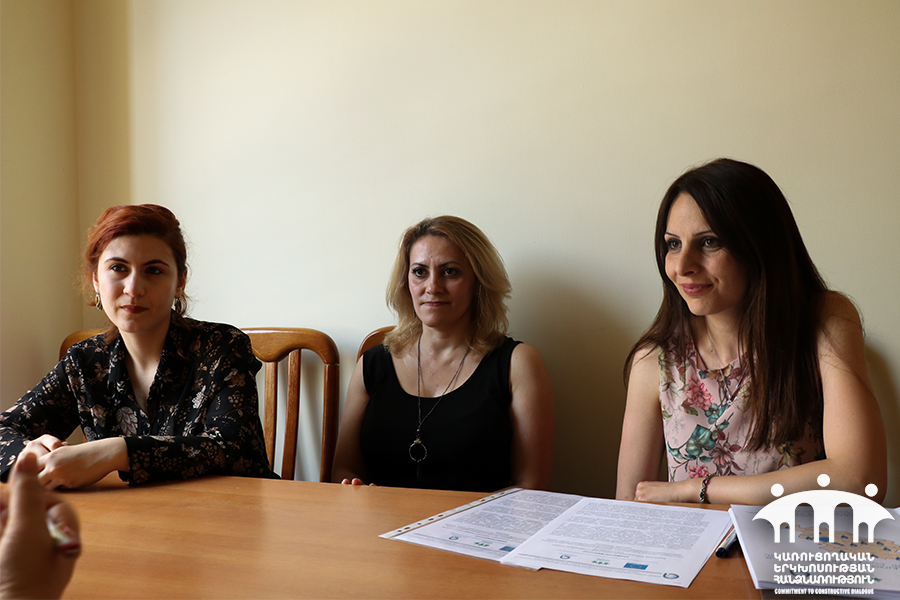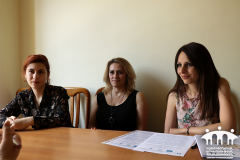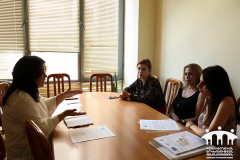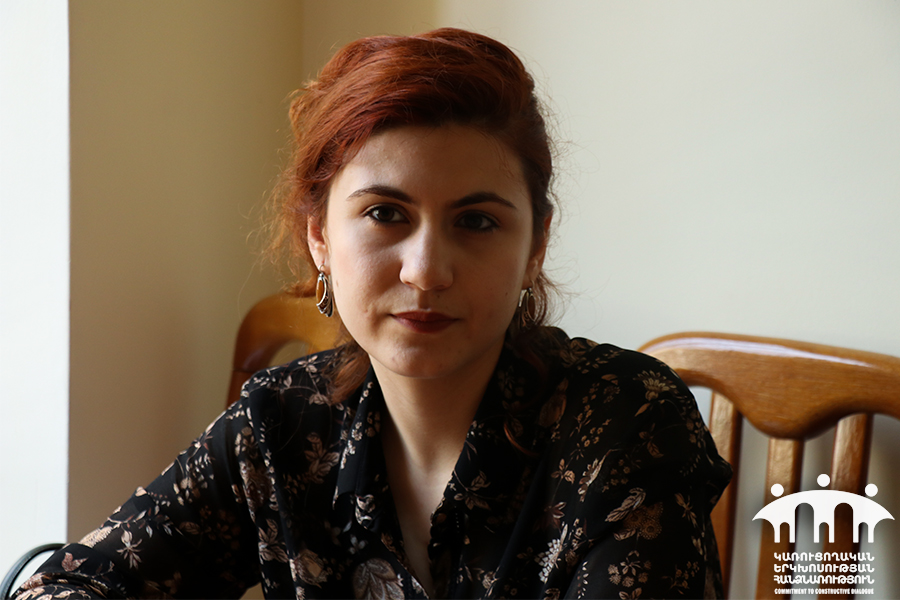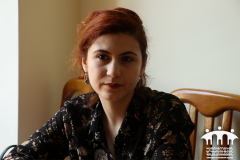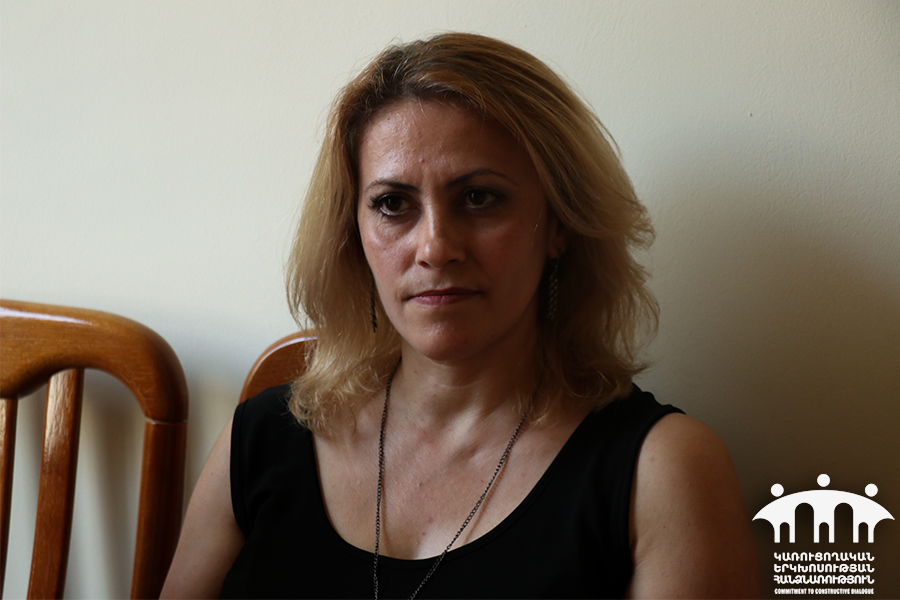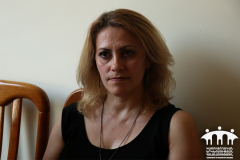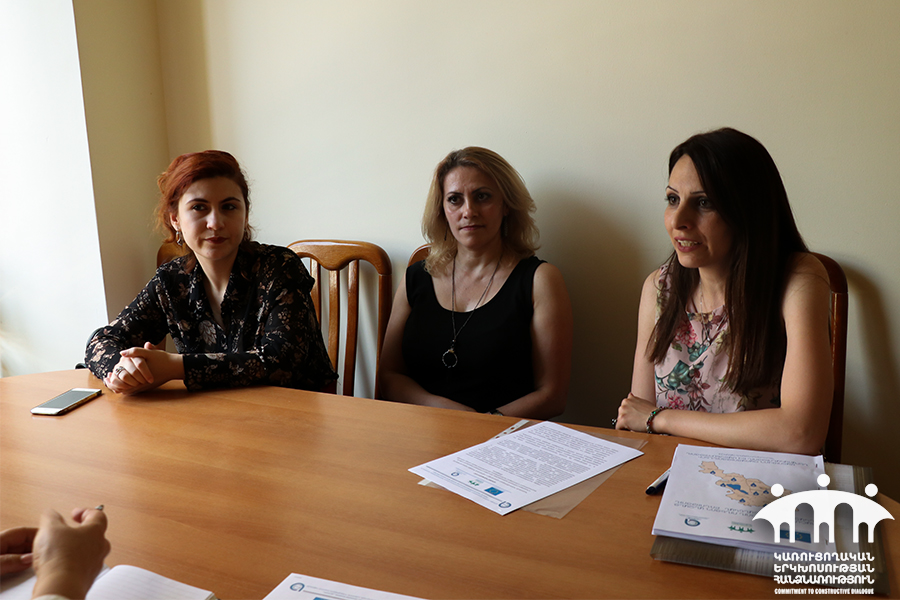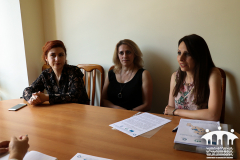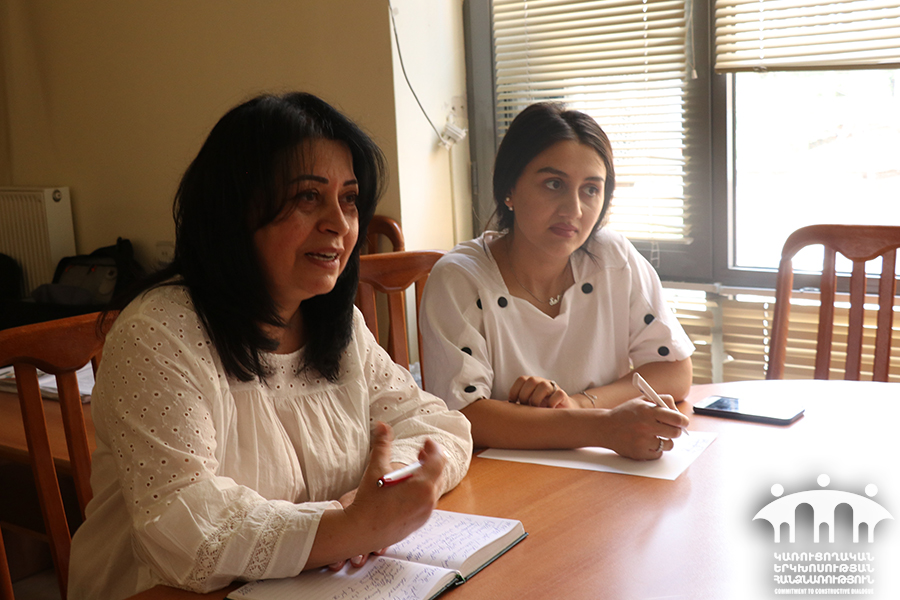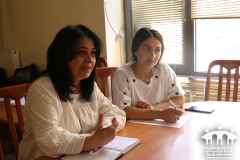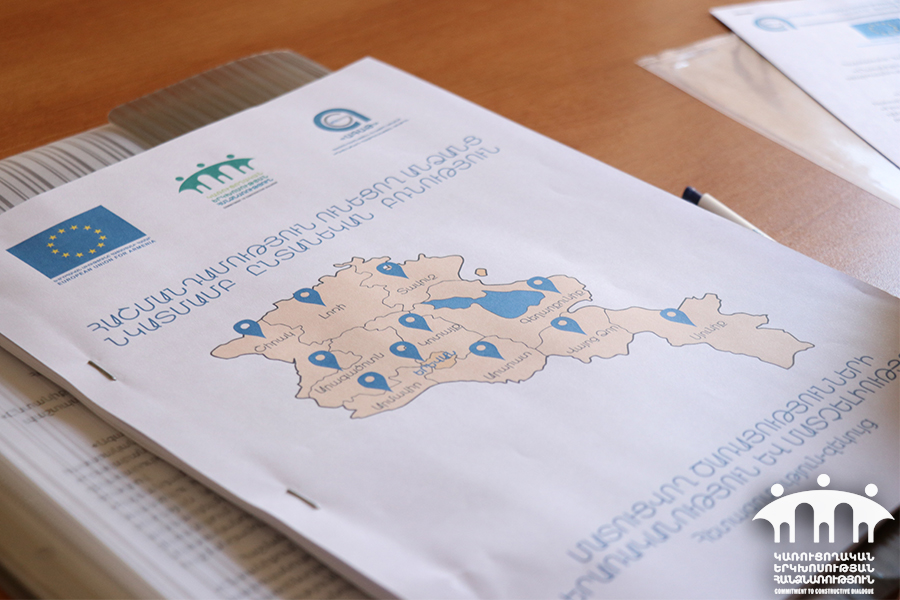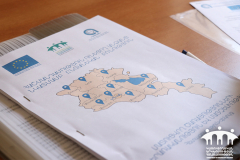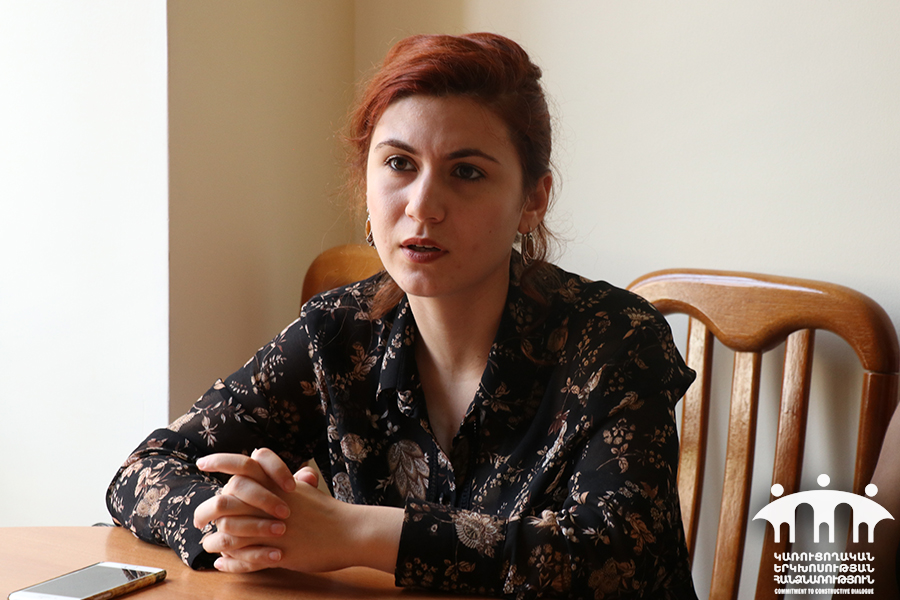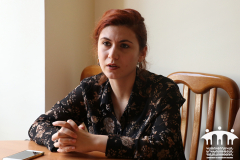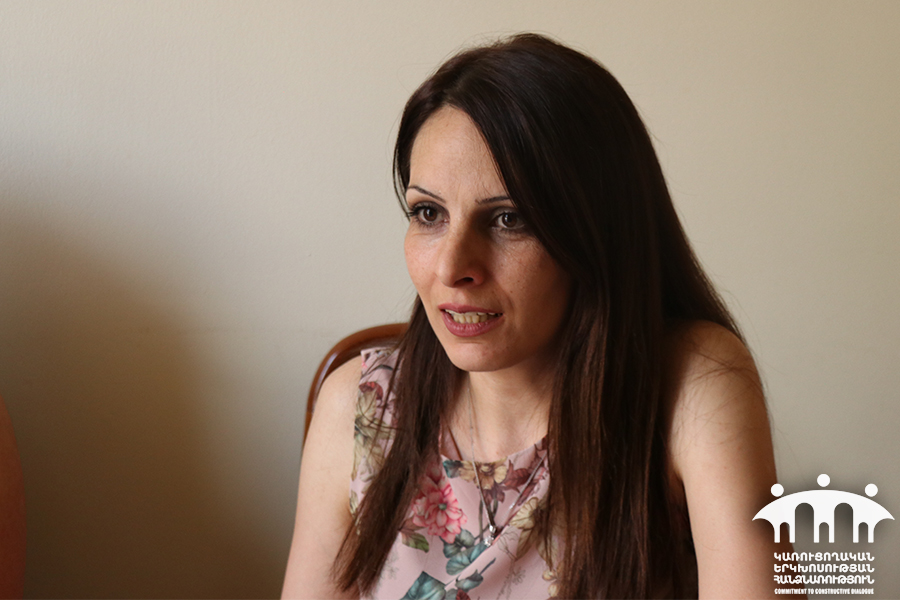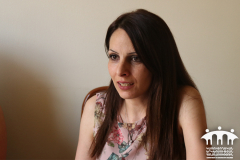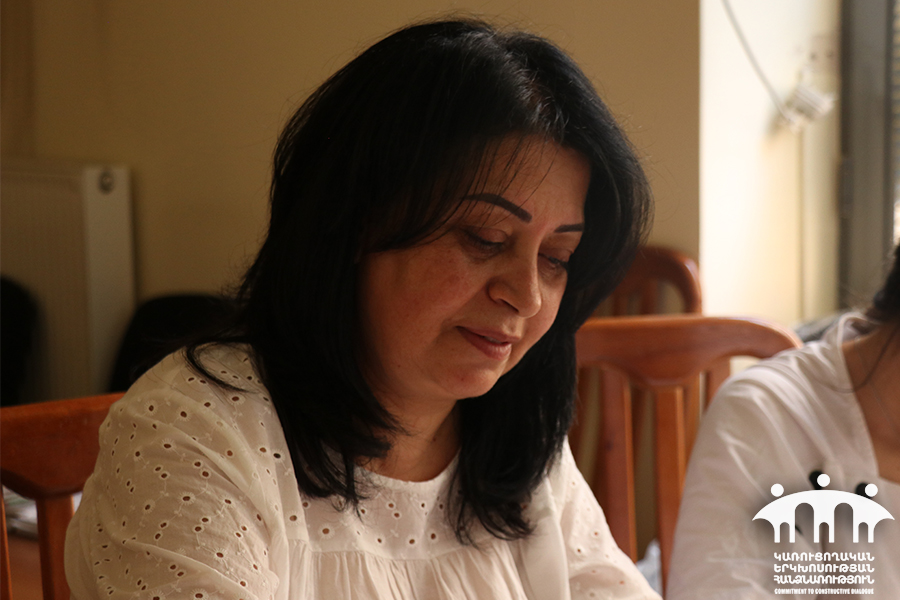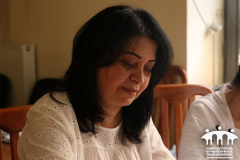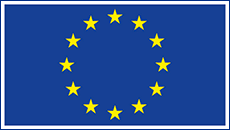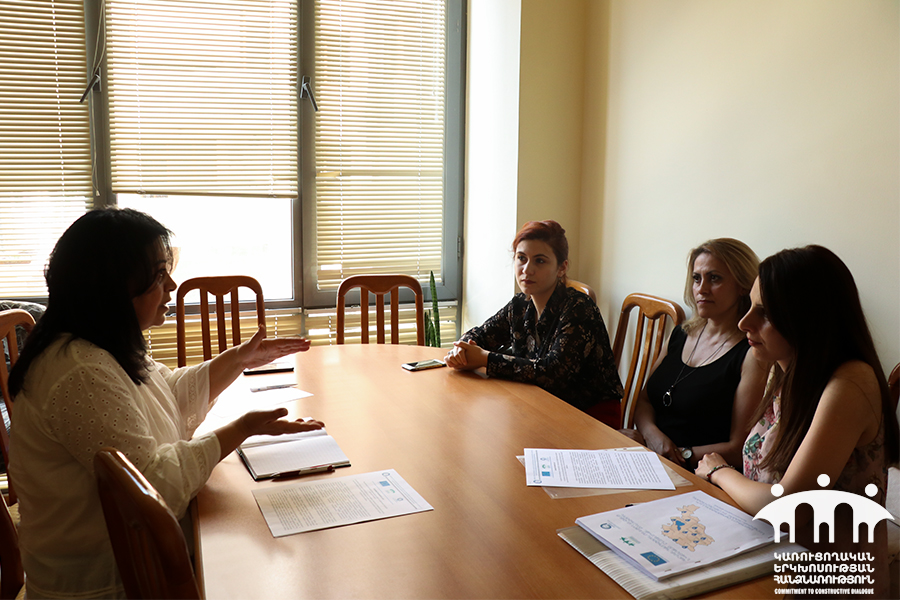
On 25 June, within the framework of the “Commitment to Constructive Dialogue” Project, Roza Avagyan, “Disability and RA Legislation” Project Manager, Project Coordinator Marine Avetisyan and Project Lawyer Luiza Vardanyan, had a working meeting with Geghanush Gjunashyan, Head of the Department of Family, Women and Children Affairs of the RA Ministry of Labor and Social Issues and Sofi Bostanchyan the leading specialist of the department.
In the course of the meeting, the following issues related to the elimination of domestic violence against persons with disabilities, the improvement of the law “On the Prevention of Domestic Violence, the Protection of Victims of Domestic Violence and Restoration of Solidarity in the Family” as well as the following proposals to improve the inclusion of sub-legislative acts and ensuring accessibility and inclusion in terms of disability of the organizations providing services to victims of violence were addressed:
- Make relevant amendments to the RA legislation to develop new regulations for the most effective disclosure and prevention of domestic violence against persons with disabilities in order to introduce more accessible and adapted means of assistance after being subjected to violence.
- Steps should be taken to ensure that the ministry, other bodies, support centers, shelters, hotlines and building conditions are available and accessible for any type of disability, being guided by international commitments of the RA and international best practices.
- To include in the training sessions for the employees of the Ministry who carry out activities in the area of domestic violence, courses related to discrimination in different groups of the population and particularly related to the domestic violence based on a differentiated approach to different groups of persons with disabilities, aimed to ensure their competence.
- Take steps to raise public awareness, particularly related to awareness of domestic violence legislation, and provide public education and awareness-raising materials on family violence prevention and assistance to persons subjected to violence through accessible options for different groups of persons with disabilities.
- Cooperate with non-governmental organizations working in the field of human rights protection to make the implemented steps more effective.
- Elaborate and enforce the relevant norms that will provide full access to shelters and social support facilities for persons with different disabilities. Accessibility of shelters includes access to bedrooms, toilets and other general facilities, presence of visual and acoustic signals, sign language interpreters and access to hotlines for people with hearing problems.
- While maintaining the statistics of violence in the household, record the type of disability of the persons subjected to violence (if available).
- Provide stable and long-term funding to shelters and social assistance centers that will be directed to providing accessible and qualified services to different groups of persons with disabilities. The funds will be channeled to the physical accessibility of these centers, providing reasonable accommodation, including a sign language interpreter.
- Provide additional funding and collaborate with non-governmental organizations dealing with the protection of the rights of persons with disabilities, to develop guidelines and information materials, to organize trainings and courses for the Police, as well as Shelter and Social Support Center staff for the correct communication and quality service with different groups of persons with disabilities. Raise awareness of what environmental, informational, communicative and attitudinal barriers are faced by individuals with disabilities in different groups of persons and what types of violence they face.
- Organize the discussions and public awareness campaigns on the domestic violence by the Ministry in the accessible places, involving the representatives of non-governmental organizations dealing with the rights of persons with disabilities.
- Ensure additional resources to raise public awareness of domestic violence in the provinces.
All submitted proposals were accepted by the representatives of the Ministry, but there was a need for discussion and decision-making with other responsible persons, which required longer time.
Notably, since the recommendations made by the organization in addition to the Ministry relate to other entities as well, more comprehensive proposals will be sent electronically to the Ministry of Justice of the Republic of Armenia, RA Police and other departments with the expectation of receiving a written response.
The Problem of Awareness of the Beneficiaries in the Core of Institutional Reforms
Since January, the “Local Democracy Development and Research Centre” NGO has been implemented “Protected Beneficiary Family and Informed Citizen” sub-grant project in the scope of the EU funded “Commitment to Constructive Dialogue” project implemented by a consortium of NGOs led by the Armenian Lawyers’ Association.
The research component of the project assumes conducting research with a qualitative methodology, as a result of which a comprehensive analytical reference entitled “Protection of Beneficiary Families and Protection of Beneficiaries”, was published. The latter, in essence, summarized the main findings and recommendations of the survey, which relate to the awareness of beneficiary family members and their interests in the context of employment.
As the survey shows, beneficiaries’ awareness of the benefits system is one of the priorities. This is why the report contained the need for comprehensive awareness-raising activities as a basic proposal. In the focus of these measures, the emphasis should be on beneficiaries, a comprehensive explanation of their rights and responsibilities, and the consequences of failure to comply with these.
The proposals include alternative options of awareness, such as leaflets (Frequently Asked Questions), which will be sent to beneficiaries or will be distributed through the post offices.
Another option is the creation of an interactive web site where beneficiaries can automatically sign up and receive notifications, submit online questions and receive emails.
The broadcasting of targeted TV broadcasts on benefits is also included. According to the beneficiaries, the topic is less covered on TV and citizens are not aware of their rights, while TV is an accessible means of getting information for everyone.
It will definitely be useful in the system of social assistance, the appointment of an employee in the territorial subdivisions, who will be aware of the issues rose by the citizens and will provide exhaustive answers.
In case of applying the relevant suggestions that are included in the report this and awareness-raising issue may somewhat be settled. Of course, all of these activities will be in vain if beneficiaries do not have the desire and willingness to be informed, and at the same time should not avoid the responsibilities that they have.


